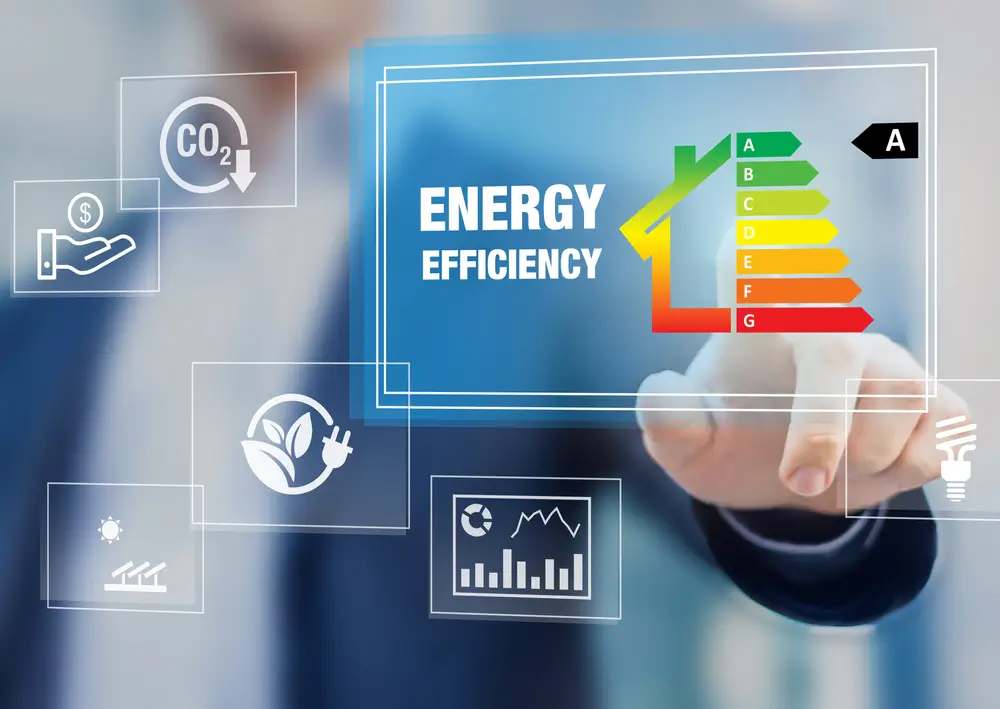Shopping for a new HVAC system can feel like trying to decode a complex puzzle of numbers and acronyms. SEER 16? EER 12.5? HSPF 8.5? What do these ratings actually mean for your home comfort and energy bills? Let’s break down these important efficiency ratings into simple, practical terms that will help you make an informed decision.
Why Energy Efficiency Ratings Matter
Before diving into the specifics, let’s understand why these ratings are crucial:
- Lower Energy Bills: Higher efficiency ratings typically mean lower monthly operating costs
- Environmental Impact: More efficient systems reduce your carbon footprint
- Home Comfort: Efficient systems often provide more consistent heating and cooling
- Equipment Longevity: High-efficiency units typically use advanced technology that can extend system life
SEER Rating: The Summer Standard
What Is SEER?
SEER (Seasonal Energy Efficiency Ratio) is like your air conditioner’s MPG rating. Just as a car’s MPG tells you how far it can drive on a gallon of gas, SEER tells you how efficiently your AC uses electricity to cool your home over an entire cooling season.
Understanding SEER Numbers
- Minimum Standard: 14 SEER (as of 2023)
- Mid-Range Efficiency: 16-18 SEER
- High Efficiency: 19-21 SEER
- Premium Efficiency: 22+ SEER
Real-World SEER Impact
Let’s break down potential savings with a practical example:
Upgrading from a 14 SEER to an 18 SEER system could save you approximately:
- 15-20% on cooling costs
- $100-300 annually (depending on usage and local energy rates)
- $1,500-4,500 over the system’s lifetime
EER Rating: The Peak Performance Measure
What Is EER?
EER (Energy Efficiency Ratio) measures your system’s efficiency at peak conditions – think of the hottest summer day when your AC is working hardest. It’s like measuring a car’s highway fuel efficiency versus city driving.
Why EER Matters
- Tests performance at 95°F outdoor temperature
- Important for areas with consistently hot climates
- Better indicator of performance during peak demand
- Crucial for utility rebate qualifications
Good EER Ratings
- Minimum Acceptable: 11 EER
- Good Efficiency: 12-13 EER
- Excellent Efficiency: 14+ EER
HSPF Rating: The Heat Pump Helper
What Is HSPF?
HSPF (Heating Seasonal Performance Factor) is specifically for heat pumps, measuring their heating efficiency over an entire season. Think of it as the heating equivalent of SEER.
Understanding HSPF Numbers
- Minimum Standard: 7.7 HSPF
- Good Efficiency: 8-9 HSPF
- High Efficiency: 9+ HSPF
The HSPF Impact
A higher HSPF rating can mean:
- More consistent heating
- Lower winter energy bills
- Better performance in moderate climates
- Improved comfort during shoulder seasons
How to Use These Ratings When Shopping
Step 1: Consider Your Climate
- Hot climates: Focus on SEER and EER
- Mixed climates: Balance SEER and HSPF
- Cold climates: Prioritize HSPF if using a heat pump
Step 2: Calculate Potential Savings
- Check your current system’s ratings
- Compare with new system options
- Factor in local energy rates
- Consider installation costs
Step 3: Look at the Complete Picture
- Equipment cost
- Installation requirements
- Available rebates and incentives
- Expected lifespan
- Warranty coverage
Making the Right Choice for Your Home
When selecting your new HVAC system, consider these factors:
- Budget Balance
- Initial investment vs. long-term savings
- Available financing options
- Utility company incentives
- Federal and state tax credits
- Home Characteristics
- Size and layout
- Insulation quality
- Window efficiency
- Local climate
- Usage Patterns
- Hours at home
- Temperature preferences
- Zoning needs
- Seasonal requirements
Beyond the Ratings: Other Efficiency Factors
Remember that efficiency ratings are just one part of the equation. Other factors affecting your system’s actual efficiency include:
- Proper installation
- Regular maintenance
- Ductwork condition
- Home insulation
- Thermostat settings
- Zone control systems
Next Steps in Your Efficiency Journey
Now that you understand efficiency ratings, you’re better equipped to:
- Compare different systems
- Evaluate potential savings
- Make an informed purchase decision
- Maximize your investmen
Ready to explore high-efficiency HVAC options for your home? Our team at National Air Warehouse can help you find the perfect balance of efficiency and performance. Contact us to discuss your specific needs and get personalized recommendations for your home.
Remember: The most efficient system is one that’s properly sized and installed for your specific home. Don’t hesitate to reach out to our experts for a personalized consultation.

